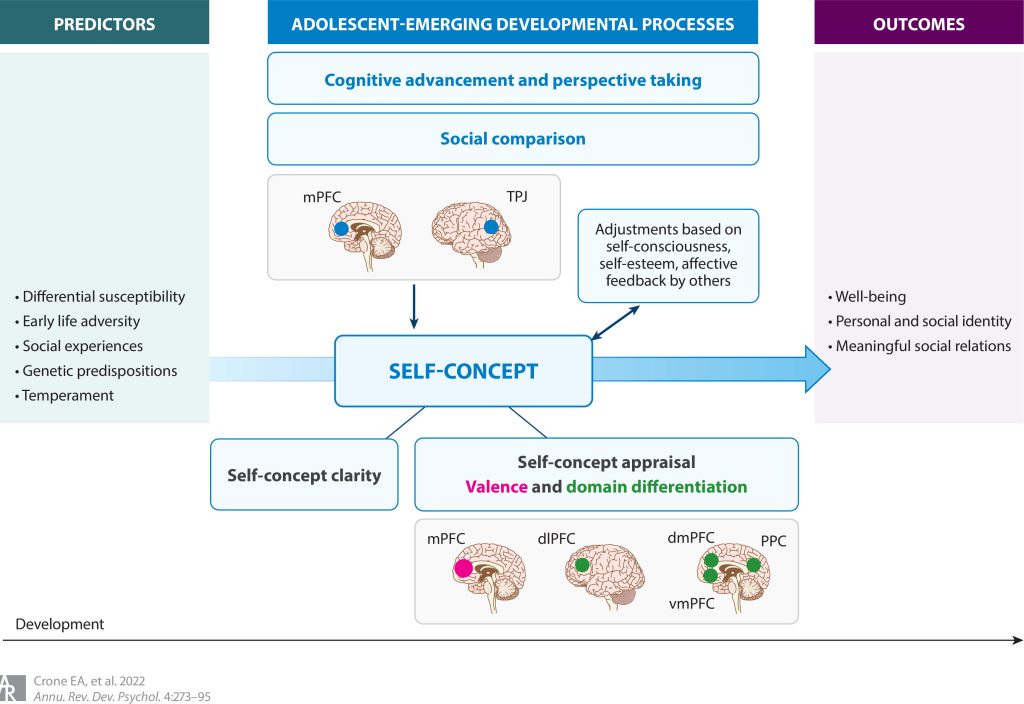A Neurocognitive Model of Self-Concept Development in Adolescence
Description
A Neurocognitive Model of Self-Concept Development in Adolescence
https://www.annualreviews.org/doi/abs/10.1146/annurev-devpsych-120920-023842
When and how do changes in self-concept emerge in adolescence, and which factors facilitate positive self-concept development? This review summarizes recent research findings on self-concept development based on neurocognitive development studies. Self-concept goes through formative changes in adolescence, including linear and nonlinear changes in perspective taking, social comparison, and self-evaluation. In this review we (a) present a neuroscientific model of self-concept development by relating processes that drive self-concept changes to neuroscience discoveries and (b) elaborate on the roles of early life experiences and environmental support factors in fostering self-concept development in adolescence. This review concludes that self-concept changes pose vulnerabilities as well as opportunities for adolescent development.

